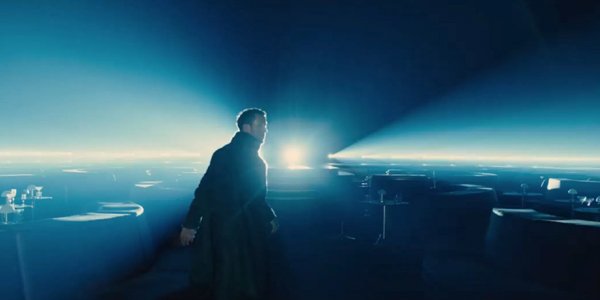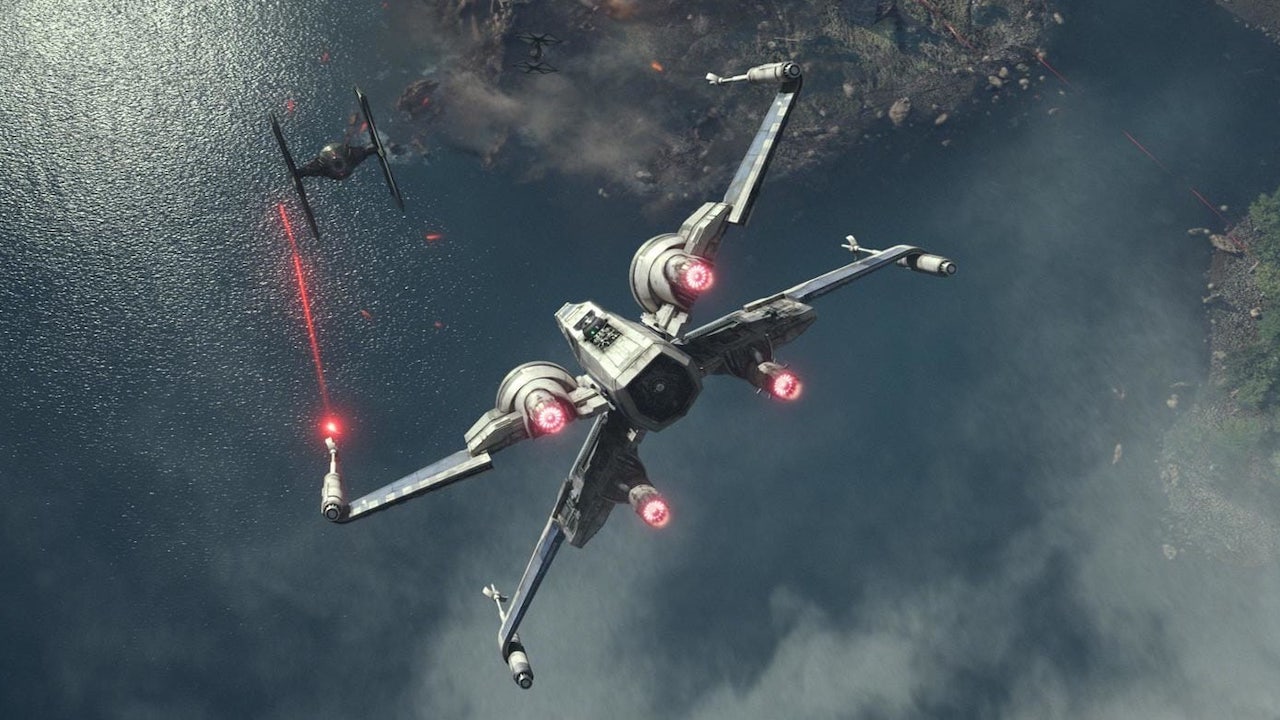The Significant Impact Arrival Had On The Development Of Blade Runner 2049

In the last few years, director Denis Villeneuve has been a very active and prolific filmmaker. He has made an impressive five features in the last four years (Prisoners, Enemy, Sicario, Arrival and Blade Runner 2049), and each of them have been seriously impressive pieces of cinema. Of the titles, however, 2016's Arrival and 2017's Blade Runner 2049 have a special relationship, as the filmmaker wasn't finished making the former when he started carving out his vision for the latter. As you can imagine, this wound up having an important effect on his process in the making of the new movie, and it involved opening himself up to collaboration significantly earlier than normal. He recently told me,
Roger Deakins, the cinematographer, came right from the start on Blade Runner [2049] to help me to storyboard the movie - a process that usually I start alone. This time I needed someone to have a dialogue with to storyboard the movie and also to design the world. Dennis Gassner, the production designer, also, both of them came to Montreal and we spent hours, weeks together drawing what would be the foundation of the movie - aesthetic laws, the logic of the society, what would be the common ground between the original and ours, and what would be the differences.
I had a fantastic chat with Denis Villeneuve at the Los Angeles press day for Blade Runner 2049 last month, and in addition to talking about the major change the film went through during development, and what happened when Harrison Ford punched Ryan Gosling in the face, I also asked about the influence of his last film. When I spoke with the director earlier this year, I learned about the serious overlap the existed between Arrival's post-production and Blade Runner 2049's pre-production, and I brought up the subject to learn how it ultimately affected the sci-fi sequel.
Given the quality of the finished product, it's clear that this extra bit of collaboration certainly didn't hurt the film and probably only helped -- but it is worth pointing out that Denis Villenueve wasn't exactly working with a couple of slouches. Roger Deakins, with whom Villenueve worked on Prisoners and Sicario, is arguably the greatest cinematographer of all time, with 13 Academy Award nominations to his name (Note: he needs to finally win for Blade Runner 2049); and Dennis Gassner's impressive resume includes four Oscar nominations (Barton Fink, Road To Perdition, The Golden Compass, and Into The Woods) and a win for 1991's Bugsy. Clearly Villeneuve understood that when you're working with filmmaking geniuses, it's good to get as much of their input as possible.
As for the other side of things, Denis Villeneuve credited another collaboration for their significant help completing the breathtaking Arrival. At the start of his answer to my question, the filmmaker praised the work of editor Joe Walker, who apparently took the reins of post-production on the 2016 movie when Villeneuve was taken away by his next project:
Both movies are very different, so that's why I was able to make them back-to-back. I will say that in order to do that I had help. My editor Joe Walker was very present until the very end - specifically on sound design on Arrival. When I had some time to leave to do some work on Blade Runner, Joe was there to have my back.
It's worth pointing out that Joe Walker also returned to do the cutting on Blade Runner 2049, so it seems like we're seeing the bloom of a wonderful cinematic relationship that will hopefully lead to many more fantastic collaborations in the future.
You can watch Denis Villeneuve talk about how his work on Arrival wound up influencing his work on Blade Runner 2049 by clicking play on the video below!
Blade Runner 2049, starring Ryan Gosling, Harrison Ford, Ana De Armas, Robin Wright, Mackenzie Davis, Sylvia Hoeks and Jared Leto, hits theaters everywhere tonight. If you go see it this weekend, be sure to check back here on CinemaBlend for a whole lot more coverage set to post in the next few days!
Your Daily Blend of Entertainment News

Eric Eisenberg is the Assistant Managing Editor at CinemaBlend. After graduating Boston University and earning a bachelor’s degree in journalism, he took a part-time job as a staff writer for CinemaBlend, and after six months was offered the opportunity to move to Los Angeles and take on a newly created West Coast Editor position. Over a decade later, he's continuing to advance his interests and expertise. In addition to conducting filmmaker interviews and contributing to the news and feature content of the site, Eric also oversees the Movie Reviews section, writes the the weekend box office report (published Sundays), and is the site's resident Stephen King expert. He has two King-related columns.
